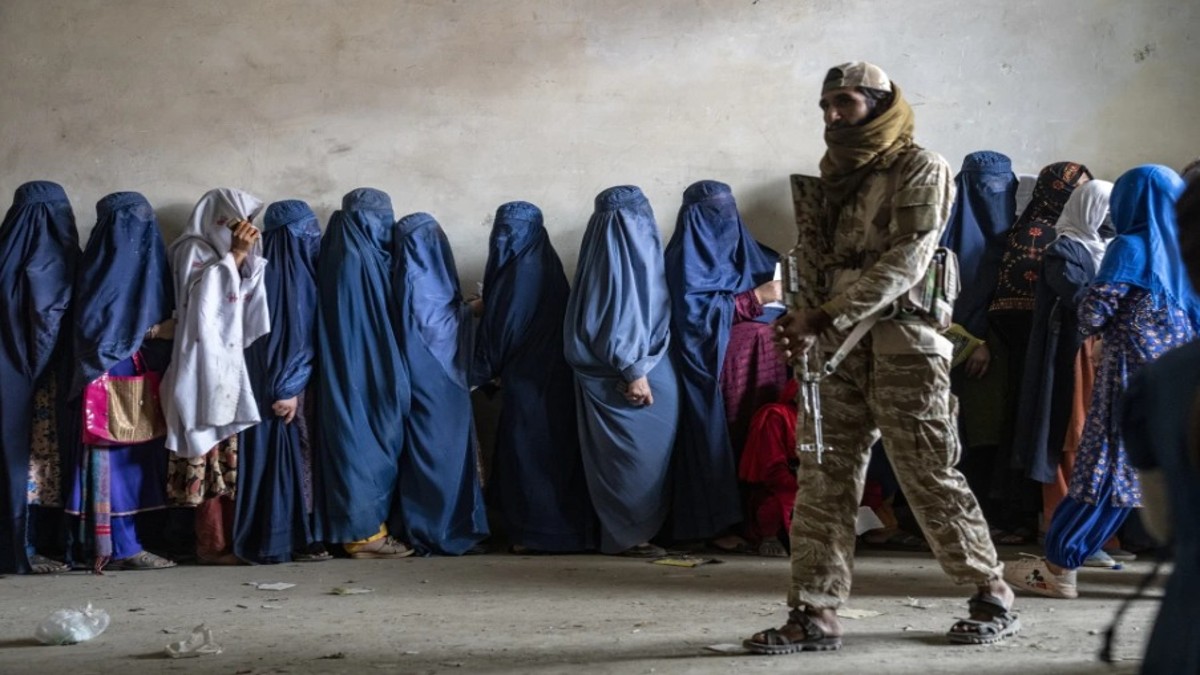The Taliban government denied recent reports of a ban on women speaking to each other, dismissing claims that women in Afghanistan are forbidden from conversing.
The reports are “brainless” and “illogical,” Saiful Islam Khyber, a spokesman for the Ministry for the Propagation of Virtue and the Prevention of Vice (PVPV), said in a voice recording, AFP reported.
“A woman can talk to another woman, women need to interact with one another in society, women do have their needs,” Khyber said.
He noted, however, that under Islamic law, certain guidelines apply, including instructions for women to communicate with hand gestures rather than raised voices during prayer, as stated by PVPV head Mohammad Khalid Hanafi in an audio recording.
The Taliban’s government has imposed restrictions on public displays of women’s voices, including a recent “vice and virtue” law prohibiting women from singing or reciting poetry aloud in public.
The law, based on the Taliban’s interpretation of Islamic law, mandates that women’s voices be “concealed” along with their bodies outside the home, barring women’s voices from radio and television broadcasts in some regions.
In August 2024, the Taliban enacted a comprehensive “Law on the Promotion of Virtue and the Prevention of Vice,” imposing extensive restrictions on personal behaviour and granting broad enforcement powers to the morality police.
Impact Shorts
More ShortsWomen’s rights in Afghanistan
This is not the first instance of its kind. Since regaining control in 2021, the Taliban has imposed numerous restrictions on Afghan women, including bans on secondary and higher education (girls are prohibited from attending school beyond sixth grade), most employment opportunities, and access to public spaces.
These measures have drawn international condemnation, with organizations like the United Nations labelling them as “gender apartheid.”
The Taliban government maintains that the rights of all Afghan citizens are guaranteed under Islamic law.
With inputs from agencies


)

)
)
)
)
)
)
)
)



